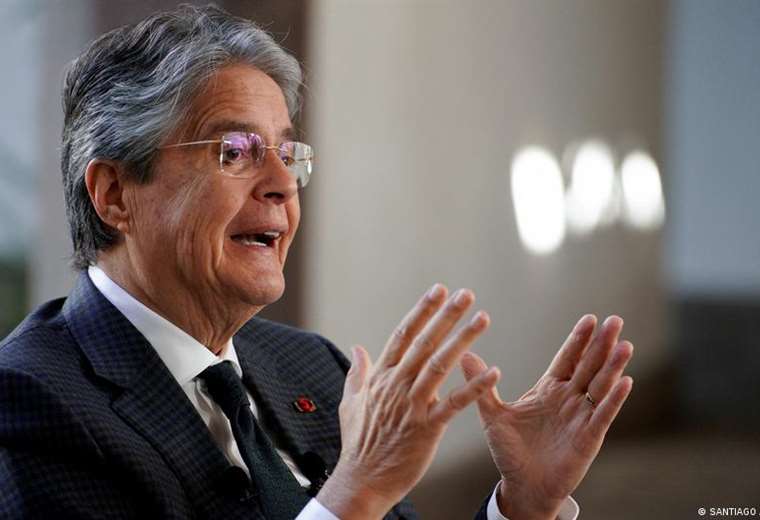The technological monotribute whose creation entered the agenda of the extraordinary session of the National Congress is seen as a tool to help retain talent trained and trained in Argentina in the field of software and associated technologies, even though its immediate effect will be to formalize income in foreign currency for exported services.
The retention in Argentina of specially trained human resources in the field of software development is one of the most relevant concerns of the sectorsince the demand for professionals for this activity is global.
Since The national government promotes the creation of a technological monotribute for “professionals who bill their services based on knowledge” and for those who “participate in e-sports competitions (professional level)”.
A sector of the business community considers that the measure will not help to retain talent and, on the contrary, points out that foreign companies hire “seniors”, that is, personnel with experience, and leaves the national industry without “leaders” to lead the integrated teams. for the “juniors”.
Others value the incorporation of the technological monotribute to ensure that professionals continue to live in Argentina, even when they work for foreign companies and their experience is payable in dollars.
There is also a sector of the business world that, like Marcelo Di Gennaro from Calipso (Grupo Visma) believes that in order to retain talent from “companies that hire from abroad and are going to pay in foreign currency, you have to ensure that the values of your culture make the person feels identified”.
In this sense, he pointed out that Calipso, which was bought by Visma last year, maintains people with up to 15 years of seniority on its team, because they are “committed” to the development of the product.
“The people who work with us feel comfortable and end up referencing known people to work with,” he added in dialogue with Télam.
“The people who work with us feel comfortable and end up referring known people to work with”Marcelo Di Gennaro
For his part, Gustavo Guaragna from Snoop Consulting, questioned the incentive for the export of professional services, “who leave a job in a dependency relationship for a contract abroad, who may be paid in crypto and in several cases they do not comply. But they have no one and nowhere to complain to.”
The position of the unions
From the union level, the general secretary of the Computer Union Association (AGC), Ezequiel Tosco, pointed out that “although we believe that it is more virtuous for the entire economy for companies to export and have their workers in a dependency relationship, it is It is necessary that this flow of income that goes abroad via freelance work is registered and does not go to the informal economy”.
“In this sense, it seems right to us to look for ways so that workers are not in the informal sector and that the State does not lose foreign currency,” he remarked.
“It seems right to us to look for ways so that workers are not in the informal sector and that the State does not lose foreign currency”Ezekiel Rough
He also said that “we hope that the professionals who export their services comply with their obligations as well as we hope that the employers comply with theirs, which today are far from fulfilling them, such as the Collective Bargaining Agreement, which today, and despite the immense amount of resources they receive, they refuse to comply.”
For his part, Ignacio Lonzieme from Unión Informática remarked in a dialogue with Télam that the “new amounts” provided for in the project improve the tool, although he insisted that there is not much “expectation” in the sense that the technological monotribute “will effectively grow to the sector” and pointed out that “if it ends up being very cumbersome administratively, many will end up not doing it and resorting to methodologies that go outside of formalization”.
“If it ends up being very cumbersome administratively, many will end up not doing it and resorting to methodologies that go outside of formalization”Ignacio Lonzieme
The estimate in the sector is that around 10% of the workers in the IT environment receive their earnings abroad, so for Lonzieme “a registration system would have to be created because there are many who want to liquidate here, who would like to do it for right” and in turn “establish a scheme to promote the creation of companies”.
As indicated by the Ministry of Knowledge Economy, Among the effects of the application of the monotribute are avoiding the informality of workers who carry out tasks abroad, as well as increasing the collection of foreign currency for unregistered export services..
The benefits of the measure
The measure includes the exchange benefit of not liquidating currencies and “favors small exporters of Knowledge-Based Services/e-gamers (whether autonomous or small groups)”, indicated from the Knowledge Economy Secretariat.
The project of the new tax scheme proposes 3 categories of annual income: up to US$10,000, up to US$20,000 and up to US$30,000
“According to each category -which is established according to the income ceiling and the integrated amount corresponding to each of them that will be paid includes income tax, social work and retirement contributions- and the amount to be paid corresponds to the categories established in Regime D, F and H”, they specified.
The project considers that the monotributo is “compatible with the General regime (which is the one registered in VAT, Earnings and Self-Employed), with the Simplified regime (monotribute) and Employees in a dependency relationship, provided that the registration is to develop a activity different from that reached by the Mono-Tech”.
They indicated that “the monotributistas, in addition to the amount that they must pay for their category, must pay for Mono-Tech the tax component that corresponds to the highest categories of the Monotax, if they are categorized in I, J and K they must pay the integrated tax amount corresponding to each of those categories”.








